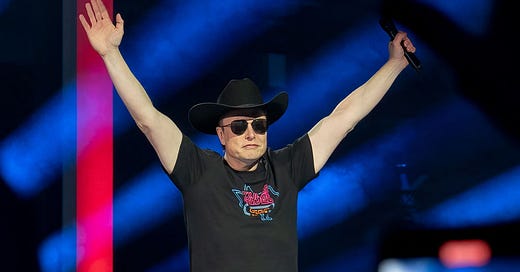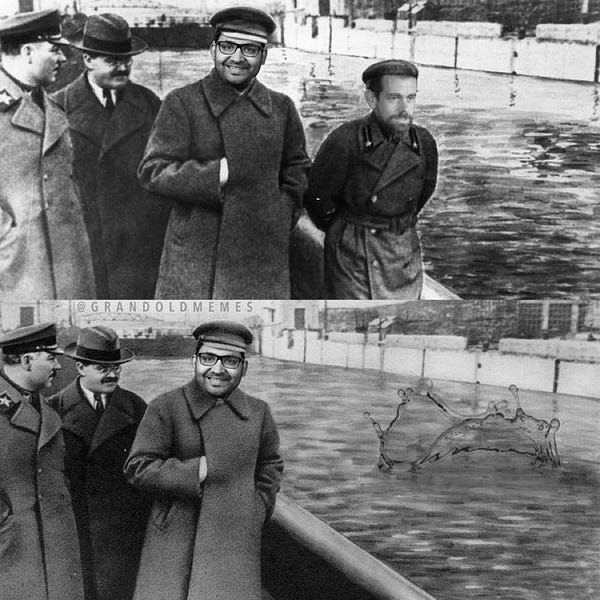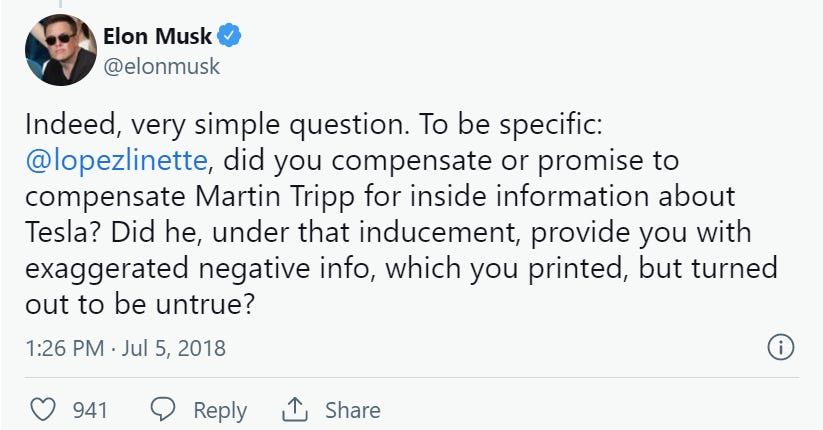Elon Musk, the richest man in the world, bought Twitter yesterday for about $44 billion. "Free speech is the bedrock of a functioning democracy," Musk said in a press release announcing the deal. "Twitter is the digital town square where matters vital to the future of humanity are debated." Musk, the CEO of Tesla and SpaceX, recently described himself as a "free speech absolutist."
Twitter initially seemed resistant to Musk's bid but ultimately accepted it because Musk offered "a substantial cash premium." When the transaction formally closes, Musk intends to make Twitter a private company.
Musk has criticized Twitter's current leadership for an insufficient commitment to free speech. Twitter permanently suspended Donald Trump's account "due to the risk of further incitement of violence." It also banned the use of "Twitter’s services to share false or misleading information about COVID-19 which may lead to harm." That policy has resulted in the suspension of a small number of accounts that have repeatedly spread misinformation about COVID-19.
In a tweet, Musk depicted Twitter CEO Parag Agrawal as Joseph Stalin, the Soviet dictator who tightened his grip on power with pervasive and extreme censorship.
Musk's own commitment to free speech, however, has its limits. While Musk has criticized Twitter's leadership, he has repeatedly attempted to squelch speech that could negatively impact his economic interests. Musk's history underscores the risks of giving near-complete control of one of the world's most powerful communication networks to one extremely rich individual.
Tesla reportedly asks Chinese censors to block critical posts
Tesla, Musk's electric car company, is extraordinarily sensitive to any public criticism. China is an enormous market and in 2020 there were "reports on Chinese social media, vigorously disputed by Tesla, about the brakes failing in its vehicles."
According to Bloomberg there is "little-to-no concrete evidence there’s anything wrong with the brakes in Tesla’s China-built cars." But instead of attempting to win over Chinese consumers with facts, Tesla reportedly sought to leverage the power of China's authoritarian regime.
According to people familiar with the matter, [Tesla] also complained to the government over what it sees as unwarranted attacks on social media, and asked Beijing to use its censorship powers to block some of the posts.
In a recent TED Talk, Musk said free speech means "someone you don’t like [is] allowed to say something you don’t like." But Musk has not acted in a way consistent with that mantra when Tesla's profits were at risk.
Attacking journalists who write stories critical of Tesla
A free press is at the center of any society that values free speech. Musk, however, has attacked journalists who write stories that are critical of Tesla. Business Insider reporter Linette Lopez, for example, has written numerous critical stories about Tesla.
Musk responded by repeatedly suggesting that Lopez was conspiring with short sellers to trade on insider information, which is a crime. Musk did not offer any evidence to substantiate his claims.
In Slate, media reporter Felix Salmon called Musk's repeated tweets about Lopez "obsessive and deranged." Salmon noted that Musk was "setting his army of fanboys loose on Lopez… retweeting stuff they find, and… encouraging them every step of the way."
Threatening workers for talking about unions
Individually, workers at large companies don't have much of a voice. When a company has tens of thousands of workers, any individual who advocates for themselves can be easily replaced with someone who keeps their mouth shut. Unions can change the equation, providing workers with a more powerful collective voice.
Musk, however, has sought to aggressively discourage unionization at Tesla. In a 2018 tweet, Musk threatened to rescind employee stock options at Tesla if workers decided to join a union.
Around the same time, Tesla fired Richard Ortiz, a Tesla employee who was advocating for a union. The National Labor Relations Board ruled in 2021 that both Musk's tweet and the firing of Ortiz violated the law.
Tesla was also ordered to amend its notoriously restrictive non-disclosure agreements (NDAs). The Tesla NDA instructed employees that "they were not allowed to speak with media without explicit written permission." But it did not advise employees that labor law "protects employees when they speak with the media about working conditions, labor disputes, or other terms and conditions of employment."
Trying to silence critical investors
In 2018, pseudo-anonymous investor, Montana Skeptic, wrote extensively about Tesla stock. Montana Skeptic had a short position on Tesla, meaning he was betting Tesla stock would go down. The investor "had a Twitter account as well as a prominent presence on the financial analysis blog Seeking Alpha."
But in July 2018, Montana Skeptic shut down his Twitter account and stopped writing about Tesla. Why? Musk allegedly found out the identity of Montana Skeptic and alerted their employer.
I do not know what Mr. Musk’s precise complaints are about me. I do not believe he has any valid legal claim, and I would have no trepidation in defending myself vigorously were he to bring any claim. My response to his threats was simply to protect my employer and preserve my employment.
Montana Skeptic's analysis was proven wrong. Tesla's stock has increased exponentially since 2018. But, according to this report, Musk couldn't wait. He allegedly sought to silence his pseudo-anonymous critic by outing them to their employer.
Pseudo-anonymous speech is an important form of free speech because it can allow people to express themselves who might otherwise be unable to do so. (In other cases, pseudo-anonymity can be abused to allow people to engage in harassment and other problematic conduct without accountability.)
In the press release announcing Twitter had accepted Musk's bid, Musk promised to defeat "the spam bots," which would be welcome. But there was also an ominous sign for the future of pseudonymity on Twitter. Musk pledged that one of his first actions as Twitter's new owner will be "authenticating all humans."
The future of Twitter
It is unknown how Musk will manage Twitter moving forward. His statements about protecting free speech, for now, are just promises. And those promises are complicated by his historical hostility toward speech he perceives as damaging toward his economic interests.
One thing we do know, however, is that the world's power and influence have become even more concentrated. By taking the company private, Musk will have tremendous power to make decisions about the future of the platform and few obligations to make those decisions public.










What would you do with $44 billion? Me? 1. $20bn, Shut down Big Oil and remove CO2. 2. End poverty and ignorance in America (better schools, critical thinking). 3. Shut down the GOP.
Judd, your last paragraph is the most chilling and it is something that I have been saying to others for years now (although you say it much better than I do):
“ One thing we do know, however, is that the world's power and influence have become even more concentrated. By taking the company private, Musk will have tremendous power to make decisions about the future of the platform and few obligations to make those decisions public.”
I believe Oligarchs inhibit development of democracies and ultimately they squelch creativity and free thinking. Based on the rise of Autocracies, I would say the world is in the grip of too few people, many of whom are obsessive sickos. Just look at Putin, the Oligarch in Russia, and the Oligarchs who shore up his power. For example, the guy known as Putin’s Chef,Yevgeny Prigozhin has ties to the Wagner Group a mercenary group that I believe has been declared a terrorist group. The Wagner Group has been implicated in coups in Africa and is being used by the Russians to fight in Ukraine.
I can hope that Musk will develop a heart and soul but I doubt it. The hallmarks are all there that he will abuse his power: witness his childish and obsessive ego. Such a shame he got his Oligarchical paws on Twitter because I have found it useful to link to people I admire.